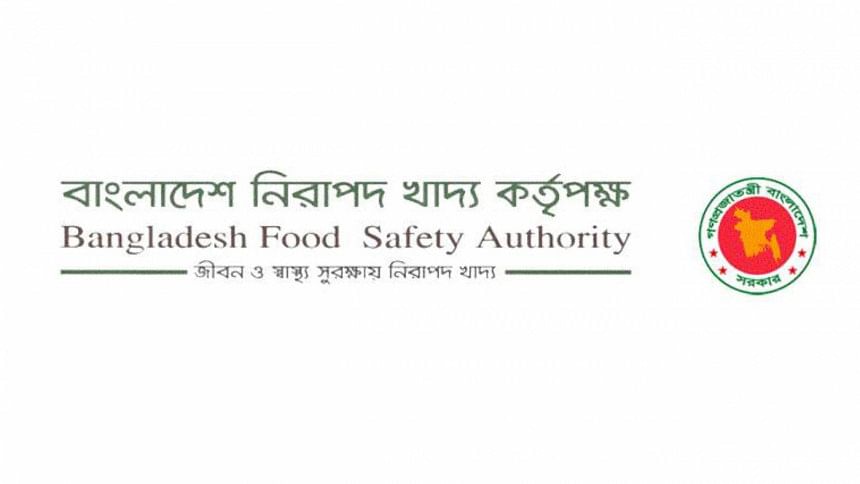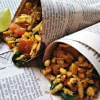Fish Importers: Ticked off by test order

Fish importers are not collecting their consignments from the Chittagong Port for the last three weeks, after the food safety authorities made it mandatory for all imported fish to go through certain tests for detection of heavy metals in them.
As a result, about 1,500 tonnes of fish have been lying in the port yard since January 1, hampering the normal operations of the port.
The Bangladesh Food Safety Authority (BFSA) ordered the compulsory test as it found high levels of harmful heavy metals in some previously imported Chandana Hilsa fish.
The test was done at the Atomic Energy Centre in the capital in the first week of December. Results show the fish contained 1.52mg of lead and 0.69mg of cadmium per kilogram, way beyond the permissible limits of 0.3mg and 0.25mg a kilogram.
The samples were collected from markets in Dhaka, but it was not clear when exactly the fish was imported.
The BFSA then asked the relevant authorities to ensure testing of all imported fish at the Atomic Energy Centre, Bangladesh Council of Scientific and Industrial Research in Dhaka or the Fish Quality Lab at Savar to detect the levels of lead, chromium, cadmium and mercury, said Md Bayezid Hossain, assistant commissioner of Chittagong Customs House.
These substances may come either from preservatives or from the food consumed by the fish, experts said.
“The consumption of such metals beyond the permissible limit may damage the kidneys of infants and the elderly and harm liver cells. It may also cause damage to the eyes and ears in the long run,” Chittagong Civil Surgeon Azizur Rahman Siddique told The Daily Star.
This is the first time in the country that the food safety authorities have decided to test fish for detecting presence of such metals. Normally, tests on fish are done to detect hazardous substances such as formalin.
Following the directive, eight importers of the fish worth about Tk 15 crore are not taking the delivery, port officials said.
“They fear that there might be high levels of hazardous metals in the fish, for which they may face legal action,” said one official.
The fish are now being stored in refrigerated containers in the port yard.
On January 6, the fish importers wrote to the BFSA, saying it would be a great hassle for them if the test was done in Dhaka because it would take a long time. They also sent a letter to the Chittagong customs commissioner the next day.
Later on January 11, the authorities decided to conduct the test in the lab of the Department of Fisheries (DoF) in Chittagong. But the test could not be done as the importers are not showing up to take their consignments.
Mohammad Shahjahan Ali, quality control lab in-charge of the DoF (Chittagong zone), said they could detect the presence of the four metals in question within a week, which is less time-consuming compared to the tests done in Dhaka.
Safar Ali, proprietor of Anika Enterprise, a clearing and forwarding agent, said the sudden decision by the authorities created a big problem for the importers.
“One importer brought 200 tonnes of fish through me, but I am not taking the delivery. I hope that the authorities will reconsider their decision,” he added.
Importers and their agents also claimed that they were singled out by the port authorities, which will cost them a large sum of money in demurrage and electricity bills.
“The port authorities can order such tests, but it will affect our business badly. As a result, fish prices will go up,” said Soumendu Basu, general secretary of Sea Fish Importers Association, also an importer.
Under the rules, importers must collect their consignments within 30 days of their arrival.
On expiry of this timeframe, the port authorities will write to the importers to collect their fish within the next 15 days. In case they fail, the port authorities will run the mandatory test on the fish on their own initiative. If the test result is negative, the fish will likely be sold in auction, port sources said.
But the fish will be destroyed if hazardous metals beyond permissible limits are found. In that case, the importers will face fine or cancellation of licence, if they are found involved in applying harmful preservatives in the fish, they added.
On Monday, the food safety authorities held a meeting with the importers and officials of other relevant authorities to find a solution, said Md Mahbub Kabir, a member of the BFSA.
“We will carry out the testing for three months. If we get satisfactory results, the rules will be relaxed. Since testing takes time, importers can collect their consignments, leaving some samples for the test. But they will not be able to sell the fish until the test results come,” he said.
Asked, Mahbub said their officials would monitor the market to ensure that these fish could not hit the market.
The DFSA has also assigned its own officials to collect samples from the port following allegations that importers and their agents alter the samples on way to the labs.
It was not clear from where these consignments came, but about 90 percent of Bangladesh's fish imports come from Myanmar, the Maldives and Oman. Nearly half of the total import volume comes from Oman, according to port sources.
In the first five months of the current fiscal year, 16,032 tonnes of fish worth Tk 66.36 crore have been imported. For the last four years, the average annual fish imports through Chittagong Port stood at 48,000 tonnes, port officials said.
The food safety watchdog, which began its journey in February 2015, said it was urgent to take quick measures to ensure safe food to attain the United Nations' Sustainable Development Goals.
Currently, lab tests are mandatory for more than 500 types of goods, including chemicals, food items, fruits, seeds, textile goods and scrap for detection of various harmful substances.

 For all latest news, follow The Daily Star's Google News channel.
For all latest news, follow The Daily Star's Google News channel. 







Comments